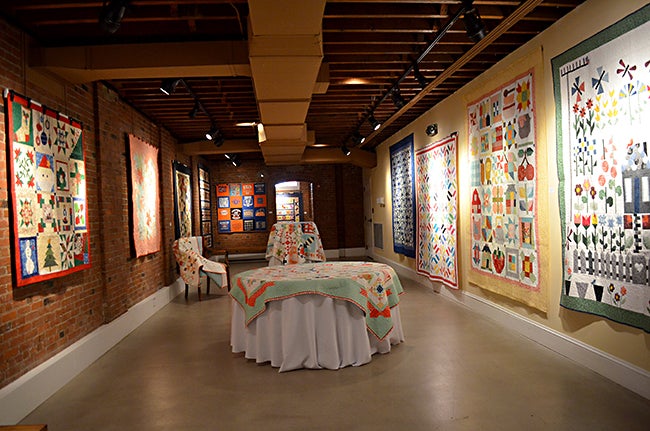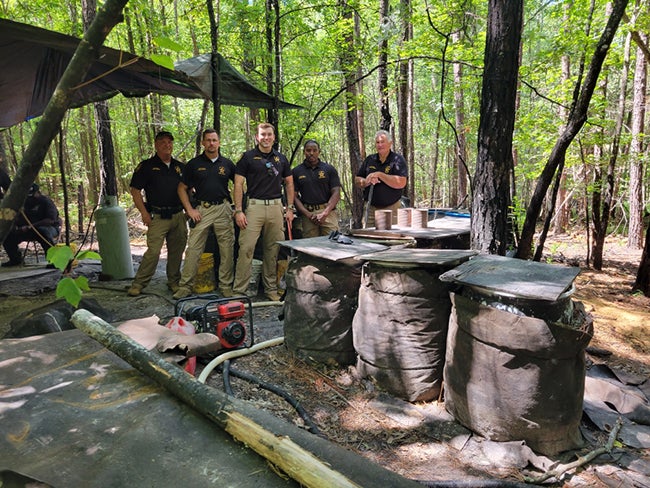Sanders remembers Ecuador jungle with fondness
Published 11:00 pm Friday, June 28, 2013
The night was the darkest Carter Sanders had ever experienced. The stars were the most and the brightest he had ever seen. The katydids had silenced. The chatter of the monkeys had ceased. If there were such a thing as perfect tranquility, Sanders was in the state of it.
Thirteen years ago, Sanders could not have imagined that he would be in the deep jungle of the upper Amazon Basin basking in the quietness and stillness of a jungle night.
But, there he was and it was “an amazing experience.”
Sanders experienced the rumble of thunder and the flashing of distant lighting on dark jungle nights and a night lit by millions of stars millions of miles away.
Sanders was no stranger to Ecuador. His journey there this month was his sixth. He went to, once again, visit friends that he met 13 years ago at Troy University, and to experience the primary jungle before it gives way to “progress.”
“In 1998, Troy University’s ‘Circle of Friends’ brought international students and members of the Troy community together,” Sanders said. “I was getting a degree in international business and was required to take a foreign language so I was taking Spanish.”
Sanders made friends with most of the Spanish-speaking students. His friend, Andres Espinoza, invited him to visit him and his family in Maravalle outside of Quito.
He visited again and again.
“The people of Ecuador are friendly and warm,” Sanders said. “During my visits to Ecuador, I’ve learned a lot about the people and their culture and have enjoyed every visit. But, I wanted to go to the deep jungle before highways are built to bring natural resources out of Brazil and Ecuador, mainly for exportation to China. When the highways come in, the primary jungles will be changed forever.”
While in Ecuador, Sanders made plans to spend time at the Cuyabeno Wildlife Reserve in the Amazon Region of Ecuador.
“The plane ride to Cuyabeno took about 25 minutes, then there was a two hour bus ride to board the water taxi that took us to the wildlife reserve, which is not far from Columbia and Brazil,” Sanders said. “Cuyabeno is owned by five Indian tribes. We stayed in cabins on the Grand Lagoon so our view was not obstructed by trees. I didn’t know that you could see the Southern Cross from there but it was wonderfully visible.”
By day, Sanders traveled by water taxi and experienced the jungle by boat and on foot.
“The temperature was about 72 every day, and what was so amazing was that there are no mosquitoes,” he said. “The acidity of the water is part of the reason. And, too, the fish eat the larva and there are no humans around to leave tires and cans where mosquitoes can breed.”
Sanders said the jungle was a beautiful and intriguing place.
“The sky was so blue, bluer than I had ever seen,” he said. “The trees were not as tall as I thought, but were so dense that the leaves looked black. Spider monkeys and wooly monkeys were in trees everywhere but it was hard to make them out.
“We saw all kinds of jungle cats, parrots and other birds, anacondas, boa constrictors and pink dolphins. The vegetation was a mixture of blooms – from big, red flowers to delicate orchids – to thick greenery. There were no briars so you could easily walk on the jungle floor.”
Vegetation was so thick in some places that it was almost impassable.
“Just on one 2.2 acre plot, there were 2,600 different species of plants,” Sanders said. “The primary jungle is a place that should remain that way forever.”
An interesting side was a visit with a Shaman.
“The Shaman that we visited was a third generation Shaman and he was more like the Disney World version,” Sanders said. “He chanted and shook leaves that looked like they were off an angel trumpet plant. People go to the Shaman for enlightenment but he seemed to be more of a herbalist who knew the secrets of the forest.”
Sanders also had an opportunity to participate in the making of yucca bread.
“The yucca plant was ground into a flour on a tin with nails hammered into it,” he said. “When the bread was baked, there was no taste to it. It was like eating nothing and, to think, that yucca bread is what has sustained the jungle people for years and years.”
Ecuador is near the equator so the sun rises at 6 a.m. and sets at 6 p.m.
“We only had electricity one hour a day so candles provided light at night,” Sanders said. “Night time in Ecuador is wonderfully dark.”
Guests at the Cuyabeno Wildlife Reserve had many opportunities for fellowship.
“Most of the people who visit Ecuador are Europeans,” Sanders said. “Not many Americans go there but I would highly recommend it. Ecuador is an amazing place. It’s about the size of Alabama and it has a coastal region and snow capped mountains with the dessert on one side and the jungle on the other.”
Sadly, Sanders said there is visible evidence of oil exploration and, with that, comes change.
“I would hate to see the rain forest disappear and the thousands of butterflies that cluster everywhere,” he said. “It would be disappointing not to be able to go into the more remote villages and buy a piece of handmade pottery that had been baked over a fire. I’m just proud that I got an opportunity to do into the deep jungle of Ecuador before it’s gone forever.”






